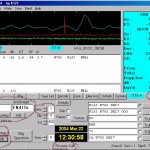Introduction:
- Apologies for being late with this episode.
Announcements:
- LHS had planned on attending the Ohio LinuxFest on September 9-11 in Columbus,OH, and the Huntsville, AL hamfest Aug 21-22, but it's just too expensive. To address that, LHS has started the LHS Ambassadors program where listeners of the show act as representatives for LHS at events. If you're interested, please contact us at ambassadors@lhspodcast.info
- When you make a donation to LHS, you can choose to appear on the Sponsors page on the LHS website.
- Linux Format magazine, the producers of the Tux Radar podcast, recently reviewed various Linux-related podcasts, and LHS wasn't even mentioned! Ouch!
- Richard announces the demise of Resonant Frequency: The Amateur Radio Podcast. Richard is looking for a place to post the articles and other content. The podcast episodes are saved at the Internet Archive, and the videos will remain on YouTube.
Topics:
- WinLink and AX.25
- Richard describes his trials and tribulations getting a WinLink packet gateway working under Ubuntu Linux.
- For the most part, Richard followed the instructions provided by Charles, K4GBB: How to install RMS Gate.
- Richard and Russ describe the steps in the Howto and possible pitfalls. Richard notes that you'll probably want to run the commands as the root user, either by logging in as root or using sudo.
- (Note, near the end of Section 4 of the Howto, it appears the author left out the "wget" in the command to retrieve the script. On the page it reads:
Get Script – Bernard has written a little Housekeeping script...
https://f6bvp.free.fr/logiciels/ax25/rc.init.script && ...
- I think that command should be:
wget https://f6bvp.free.fr/logiciels/ax25/rc.init.script && ...
Note that I've shortened the lines with ellipses here. -Ed.)
- Other useful links:
Feedback:
- Andy, KB1OIQ, tells us of his Ham Radio Linux CD, based on Ubuntu Linux 10.10, and includes many ham radio programs.
- Rich, KD0BJT, of the LowSWR podcast, is working on a ham radio-related Linux distribution, too.
Contact Info:
- Contact Richard at kb5jbv@gmail.com, Russ at k5tux@lhspodcast.info, or both at the same time at info@lhspodcast.info.
- Listen to the live stream every other Tuesday at 8:00pm Central time. Check the LHS web site for dates.
- Leave us a voice mail at 1-909-LHS-SHOW (1-909-547-7469), or record an introduction to the podcast.
- Sign up for the LHS mailing list.
- Sign up for the MAGNetcon mailing list.
- LHS merchandise is available at the Merch link on Web site. Check out the Badgerwear or buy one of the other LHS-branded items at PrintFection.com/lhs or Cafe Press. Thanks!
- Thanks to Dave from Gamma Leonis for the theme music.
Music:
- "Mendes" by Assembly Line Gods from the album "Control: Volume 1."
- "Pound of Flesh" by Assembly Line Gods from the album "Control: Volume 1."
Please note that the music in this episode is neither Creative Commons nor podsafe. To support the artist, please visit Assembly Line Gods on Facebook, iTunes or at https://www.assemblylinegods.com.
